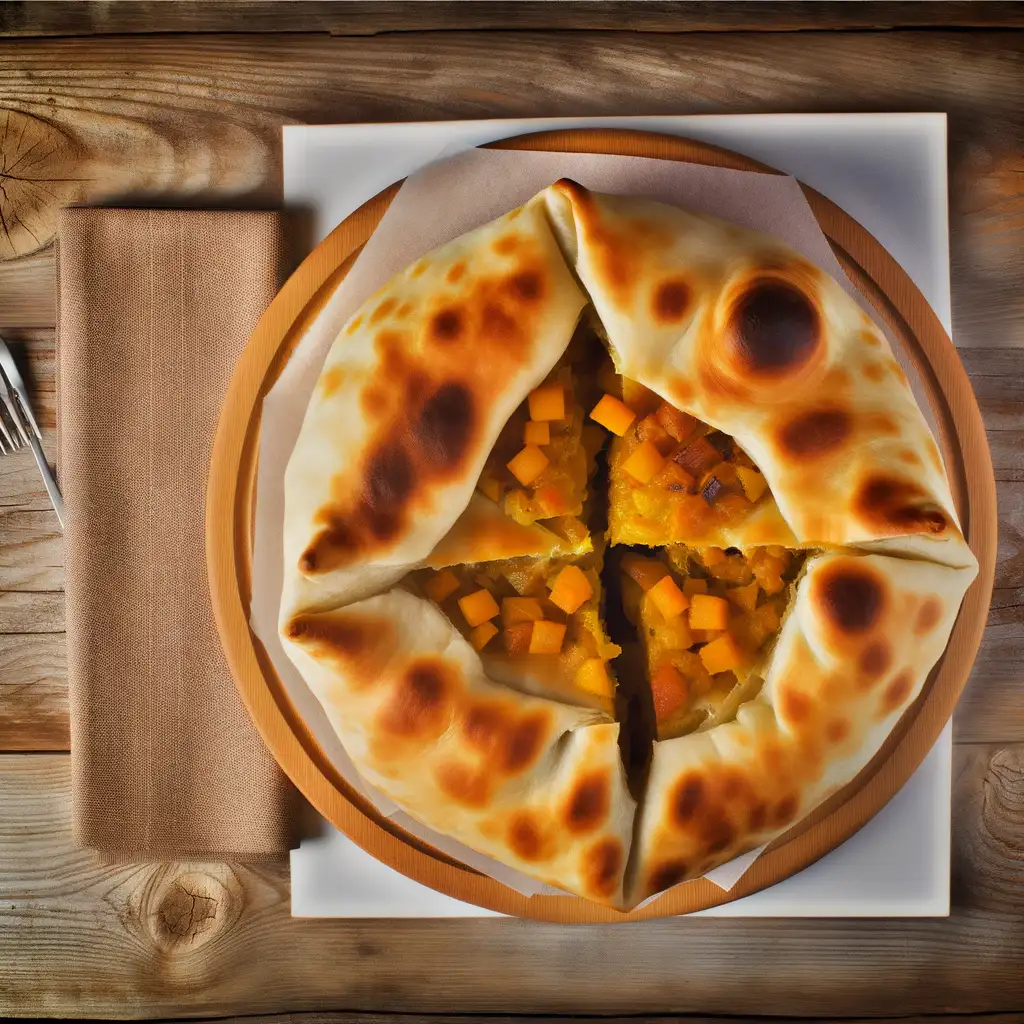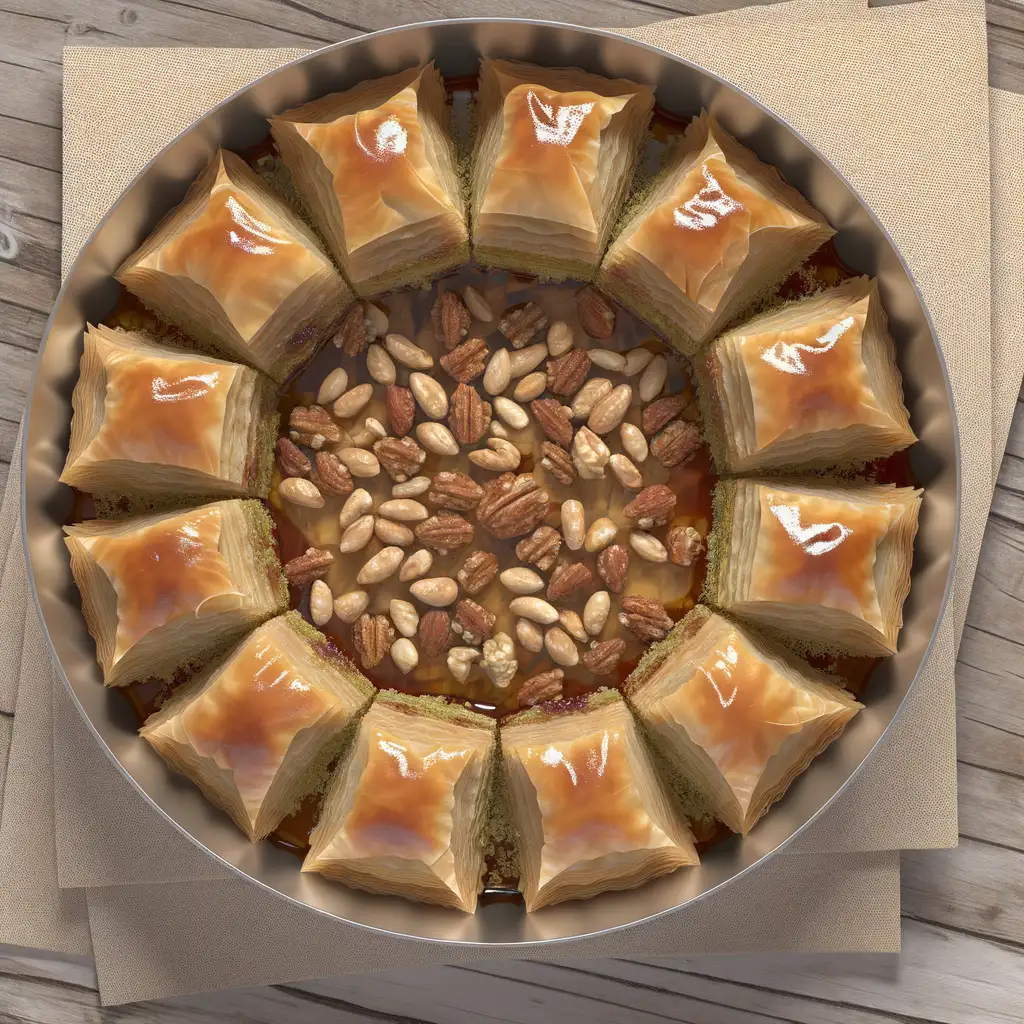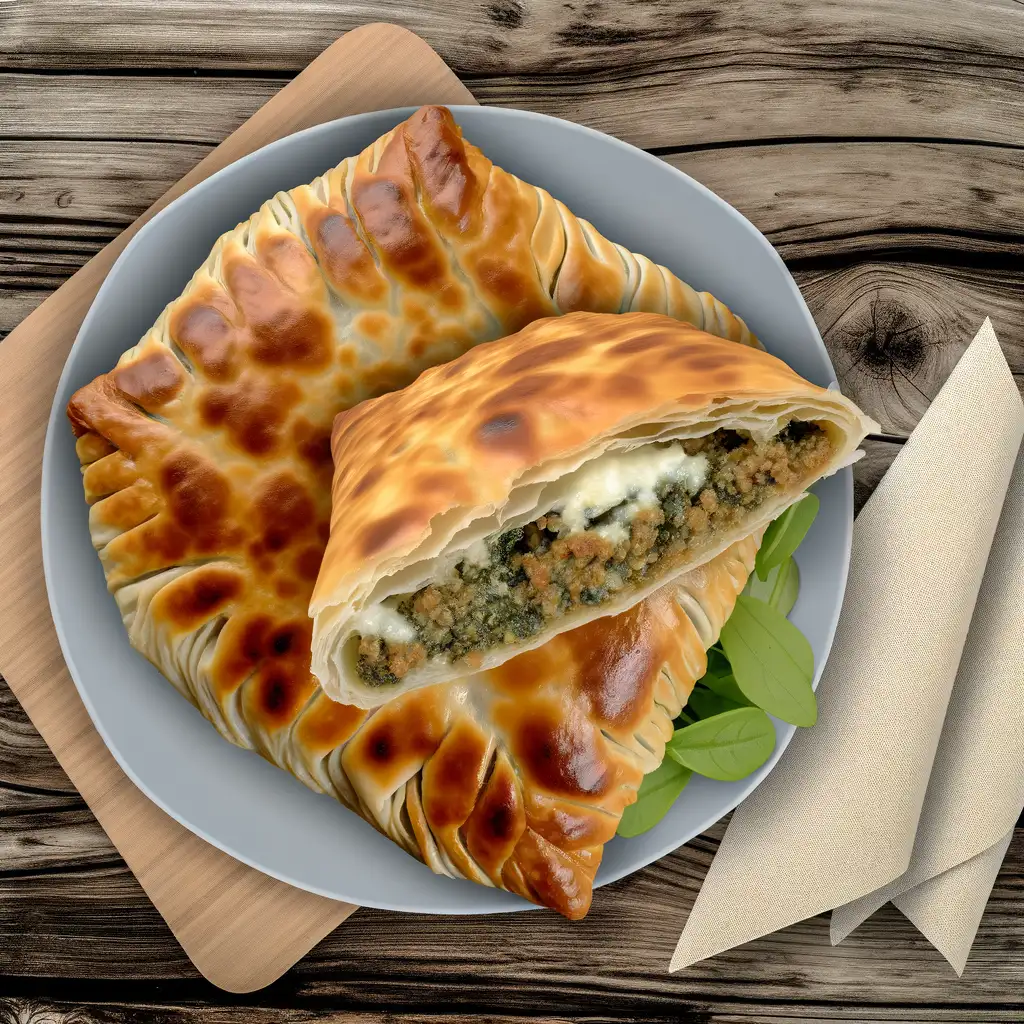



Sarajevo feels like stepping into a story where East meets West in the most beautiful,unexpected way. The city hums with a warm,inviting energy—streets lined with Ottoman-era mosques stand shoulder to shoulder with Austro-Hungarian architecture,and the scent of freshly brewed Bosnian coffee drifts through the air,mingling with the aroma of grilled ćevapi from nearby street vendors. Walking through Baščaršija,the old bazaar,you hear the clink of copper crafts being hammered and the lively chatter of locals bargaining,all set against the distant call to prayer that weaves through the city’s soundtrack. Sarajevo’s character is deeply layered,shaped by its complex history and resilient spirit. You can feel it in the way people greet you with genuine warmth,eager to share stories over a glass of sweet,strong tea or a plate of burek. The city wears its scars openly,but it’s the sense of hope and renewal that lingers strongest. Strolling along the Miljacka River,you catch glimpses of colorful street art and cozy cafés spilling onto cobblestone sidewalks,inviting you to pause and soak it all in. What makes Sarajevo truly unforgettable is how it embraces contrasts—ancient and modern,sorrow and celebration,quiet reflection and lively festivity—all wrapped in a rich cultural tapestry. It’s a place where every corner has a story,every meal feels like a warm hug,and every moment invites you to slow down and savor the unexpected beauty of life.
The information on this page is currently being reviewed by Tripkliq and should be used as a guide only
Eng word: Hello
Eng pronunciation: Zdra-vo
Local language: Zdravo
Eng word: Goodbye
Eng pronunciation: Do-vee-jen-ya
Local language: Doviđenja
Eng word: Thank you
Eng pronunciation: Hva-la
Local language: Hvala
Eng word: How much
Eng pronunciation: Ko-lee-ko
Local language: Koliko
Eng word: Toilet
Eng pronunciation: To-a-let
Local language: Toalet
Eng word: Help me
Eng pronunciation: Po-mo-zee mee
Local language: Pomozi mi
Eng word: Yes
Eng pronunciation: Da
Local language: Da
Eng word: No
Eng pronunciation: Ne
Local language: Ne
Eng word: Excuse me
Eng pronunciation: O-pro-stee-te
Local language: Oprostite
Sarajevo was part of the Ottoman Empire from 1461 to 1878, which heavily influenced the city's architecture, culture, and religion.
The assassination of Archduke Franz Ferdinand of Austria in Sarajevo in 1914 was the catalyst for World War I.
During the Bosnian War from 1992 to 1996, Sarajevo was under siege for 1,425 days, making it the longest siege of a capital city in modern history.
The Sarajevo Haggadah, a medieval Jewish manuscript, survived various threats throughout history and is now housed in the National Museum of Bosnia and Herzegovina.
Sarajevo hosted the 1984 Winter Olympics, becoming the first city in a socialist country to host the Winter Games.
The Latin Bridge in Sarajevo is famous for being the site of Archduke Franz Ferdinand's assassination and is a significant historical landmark.
The Gazi Husrev-beg Mosque in Sarajevo is one of the city's oldest mosques, dating back to the 16th century during Ottoman rule.
Sarajevo Roses are red resin-filled craters on the streets of Sarajevo, marking where mortar shells hit during the siege of Sarajevo.
Vijecnica, the former city hall of Sarajevo, was destroyed during the Bosnian War but has since been restored and serves as a symbol of the city's resilience.
In Sarajevo, the most common Power Adaptor is Type C, Type F.



Grilled minced meat sausages, usually made from a mix of beef and lamb, served with somun (flatbread), chopped onions, and a red pepper-based condiment called ajvar.

A flaky pastry filled with various ingredients, such as pumpkin, potatoes, or cheese, often enjoyed as a snack or light meal.

A sweet dessert made of layers of filo pastry filled with chopped nuts and sweetened with honey or syrup, often enjoyed with coffee.

A savory pastry filled with minced meat, onions, and spices, wrapped in thin layers of dough and baked until golden brown. It can also be made with cheese or spinach.

Fresh fish, often trout, grilled and served with a side of vegetables or potatoes, reflecting the region's access to rivers and lakes.

Stuffed onions filled with a mixture of minced meat and rice, seasoned with various spices, and then baked in a tomato sauce.

A traditional Bosnian dessert made from baked apples stuffed with walnuts, sugar, and cinnamon, often served with whipped cream.
If you ever find yourself wandering through the sun-drenched streets of Dubrovnik,you’ll immediately feel like you’ve stepped into a living storybook. The city’s ancient stone walls rise proudly against the sparkling Adriatic,and as you stroll along the marble-paved Stradun,the salty sea breeze mingles with the scent of fresh pine and blooming bougainvillea. There’s a rhythm here—a gentle hum of life where history and modern charm dance together effortlessly.
Dubrovnik’s character is woven into every corner:the clatter of café cups,the murmur of locals chatting in cozy taverns,and the distant call of seagulls overhead. You can almost taste the city in the air—briny and fresh,with hints of grilled seafood and ripe figs from the markets. Sitting at a seaside restaurant,watching the sun dip behind the fortress walls,you’ll savor dishes bursting with Mediterranean flavors,paired with a glass of crisp Croatian white wine.
What makes Dubrovnik truly special is how it balances its rich past with a vibrant present. The city’s narrow alleys invite exploration,revealing tucked-away galleries,artisan shops,and lively squares where music spills out into the streets. Whether you’re tracing the footsteps of ancient mariners or simply soaking up the golden light on a quiet terrace,Dubrovnik feels like a warm embrace—inviting,timeless,and utterly unforgettable.
If you ever find yourself wandering through Split,it’s like stepping into a living,breathing storybook where ancient history and vibrant modern life dance together effortlessly. The moment you stroll along the Riva promenade,the salty breeze from the Adriatic mingles with the aroma of fresh espresso and grilled seafood wafting from nearby cafés. Locals chat animatedly in the sun-dappled squares,their laughter blending with the distant hum of boats bobbing gently in the harbor. There’s a laid-back energy here that feels both timeless and alive,inviting you to slow down and soak it all in.
Split’s heart beats strongest in Diocletian’s Palace,a sprawling Roman fortress that’s less a museum and more a neighborhood where people live,shop,and gather. Walking through its ancient stone alleys,you’ll catch glimpses of colorful markets,artisan shops,and cozy taverns tucked into centuries-old walls. At night,the city transforms as lanterns flicker on,and the sound of live klapa singing—traditional a cappella harmonies—drifts through the air,wrapping you in a warm,soulful embrace.
What really makes Split unforgettable is how effortlessly it blends the old with the new. You can savor a plate of fresh octopus salad while watching fishermen haul in their catch,then wander to a rooftop bar for a cocktail as the sun sets behind the islands. It’s a place where every corner tells a story,every meal feels like a celebration,and every moment invites you to become part of its ongoing tale.
If you ever find yourself wandering the Dalmatian coast,Zadar is one of those places that sneaks up on you with its quiet charm and unexpected magic. The moment you step onto its ancient stone streets,there’s this warm,timeless feeling—like the city is gently humming a tune just for you. The salty breeze from the Adriatic mingles with the scent of fresh pine and blooming jasmine,wrapping around you as you stroll along the waterfront. It’s a place where history isn’t just in museums; it’s alive in the crumbling Roman ruins,the medieval churches,and the lively squares where locals gather to chat and sip coffee.
What really sets Zadar apart is its playful spirit. You’ll hear it in the waves as they dance through the Sea Organ,an extraordinary installation that turns the sea’s movement into haunting melodies. And just a few steps away,the Sun Salutation lights up the night with a mesmerizing display of colors,making the waterfront feel like a celebration of nature and art. Grab a seat on the stone benches,watch the sun dip below the horizon,and you’ll understand why Alfred Hitchcock once called Zadar the most beautiful sunset in the world.
The city’s vibe is relaxed but vibrant,with cozy konobas serving up fresh seafood and local wines that taste like the essence of the region. Whether you’re wandering through the bustling market,exploring narrow alleys,or simply soaking in the views from a café terrace,Zadar invites you to slow down,breathe deeply,and savor every moment.
If you ever find yourself wandering the Adriatic coast,Kotor is the kind of place that wraps around you like a warm,familiar hug. Nestled beneath towering limestone cliffs and cradled by the shimmering Bay of Kotor,this medieval town hums with a quiet energy that feels both timeless and alive. As you stroll through its labyrinth of narrow cobblestone streets,you’ll catch the scent of fresh sea salt mingling with the earthy aroma of old stone and blooming jasmine. The sound of church bells ringing softly blends with the distant chatter of locals and the gentle lapping of waves against ancient walls.
Kotor’s charm lies in its layers—each corner reveals a story,from the faded frescoes inside centuries-old churches to the vibrant markets where vendors call out,offering ripe figs,olives,and freshly caught seafood. The city’s Venetian architecture,with its weathered facades and ornate balconies,whispers tales of a rich past,while cozy cafes spill out onto sun-dappled squares,inviting you to sip strong Montenegrin coffee or a glass of local wine.
What really stays with you is the feeling of being somewhere that’s both peaceful and full of life. Whether you’re climbing the fortress walls for a breathtaking view of the bay or simply watching the sunset paint the water in shades of gold and pink,Kotor has a way of making you slow down and soak it all in. It’s a place that lingers in your heart long after you’ve left.
Tirana feels like a city that’s constantly waking up,buzzing with a youthful energy that’s both refreshing and contagious. When you stroll through its colorful streets,you’ll notice how the pastel buildings,splashed with vibrant murals,seem to tell stories of resilience and creativity. The air carries a mix of fresh coffee aromas from cozy cafés and the faint scent of pine from nearby hills,inviting you to slow down and soak it all in. It’s a place where old meets new effortlessly—ancient Ottoman architecture sits side by side with sleek,modern spaces,creating a unique rhythm that’s both familiar and surprising.
The city hums with life,especially in the lively bazaars and open-air markets where vendors call out,selling everything from fresh figs to handmade crafts. You’ll hear the chatter of locals,the clinking of glasses in bustling taverns,and the occasional strains of traditional Albanian music blending with modern beats. Tirana’s warmth isn’t just in its climate but in its people—friendly,proud,and eager to share their stories and traditions.
What really makes Tirana stand out is its fearless spirit. It’s a city that’s reinvented itself,embracing change while holding tight to its rich cultural roots. Whether you’re sipping a raki with new friends or wandering through the peaceful Grand Park,you’ll feel a genuine connection to a place that’s alive,welcoming,and full of surprises.
Athens feels like stepping into a living storybook where ancient history and vibrant modern life dance together effortlessly. The moment you wander through its sun-drenched streets,you’re greeted by the warm hum of chatter spilling from cozy cafés,the scent of freshly baked bread mingling with salty sea air. The city’s heartbeat is unmistakable—whether it’s the clinking of glasses in a bustling taverna or the distant echo of footsteps climbing the Acropolis at sunset.
What makes Athens truly captivating is its raw,unpolished charm. You’ll find crumbling ruins nestled beside colorful street art,and locals who greet you with genuine smiles and a generous spirit. The city pulses with creativity—from lively markets where vendors call out their freshest olives and figs,to rooftop bars where you sip ouzo while the Parthenon glows golden against the twilight sky.
Athens invites you to slow down and savor its layers. Taste the tang of lemon in a perfectly grilled souvlaki,feel the rough stone of ancient columns beneath your fingertips,and listen to the mix of languages and laughter that fills the air. It’s a place where every corner tells a story,and every meal feels like a celebration. If you want a city that’s alive with history yet buzzing with contemporary energy,Athens will wrap you in its warm,timeless embrace.
Children or adults may approach tourists with emotional stories to solicit money, which may not go to those in need.
Tourists may be tricked by unofficial money exchange services offering attractive rates, only to receive counterfeit or outdated currency.
Scammers posing as charity workers may approach tourists asking for donations for fake causes.
Unlicensed individuals may offer guided tours, providing little value or incorrect information while charging high fees.
Some vendors may charge tourists significantly higher prices for souvenirs or local goods compared to locals.
Crowded areas like Baščaršija and public transport are hotspots for pickpockets targeting distracted tourists.
Some restaurants may add extra items or hidden fees to the bill, assuming tourists won't notice.
Street performers may demand payment after a tourist takes a photo or watches their performance, even if no prior agreement was made.
Some taxi drivers may not use the meter or take unnecessarily long routes to inflate the fare.
The possession, use, and trafficking of illegal drugs are strictly prohibited in Sarajevo and throughout Bosnia and Herzegovina. The country has stringent drug laws, and violations can result in severe penalties, including imprisonment. Tourists should avoid any involvement with illegal drugs to avoid legal trouble.
In Sarajevo, smoking is quite common, and you will find that many locals smoke. However, there are regulations in place. Smoking is prohibited in public buildings, including hospitals, schools, and government offices. Restaurants and cafes may have designated smoking areas, but many are now smoke-free indoors. Always look for no-smoking signs and respect the rules of the establishment you are in.
Vaping is less common than smoking in Sarajevo, but it is subject to similar regulations. Vaping is generally prohibited in the same places where smoking is banned, such as public buildings and indoor public spaces. It is advisable to ask for permission before vaping in restaurants, cafes, or other public places.
What are other people saying about Sarajevo?
Recent Social posts about Sarajevo
There is nothing to show you for now.